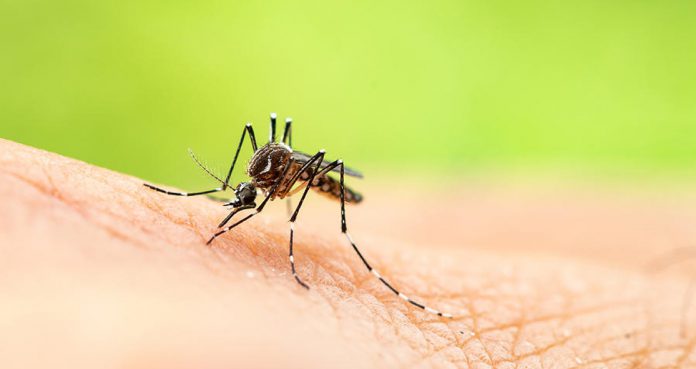Dengue has been listed as one of the top 10 global health threats by the World Health Organization (WHO) this year, which is why health officials say they desperately need a vaccine to prevent the disease.
In recent years, the number of dengue cases has increased dramatically. According to the WHO, “there has been a 30-fold increase in infections since 1970.” In 2018, more than 100 million people suffered from the mosquito-borne disease,
Also called breakbone fever, dengue has no specific treatment. When a dengue epidemic occurs, an increasing number of patients go to their PCPs with severe flu-like symptoms. Brazil has had over 2 million dengue cases this year, with major outbreaks reported in the Philippines, Indonesia, and Bangladesh.
Derek Wallace, who runs Takeda Pharmaceutical Company’s global dengue vaccine trials, said, “This [dengue] is the fastest-spreading mosquito-borne viral disease on the planet. Dengue is a very important disease across a large part of the world. Nearly half the world’s population is at risk of dengue,” he says. “There are nearly 400 million infections annually, and about 100 million of those are symptomatic.”
However, a new experimental dengue vaccine called TAK-003, which is developed by Takeda Vaccines, has shown promising results in preventing the disease. Researchers said that the clinical trials of the latest dengue vaccine showed promising results.
They found TAK-003 to be effective in 80 percent effective at preventing the participants from getting dengue and 95 percent effective at preventing severe dengue. However, the vaccine’s safety and efficacy are still under trials.
The researchers reported the findings of the trials on Wednesday in the New England Journal of Medicine.
Wallace and his colleagues think they are pretty close to having a dengue vaccine, which could prevent the disease. He said, “We’re thrilled with the results. A vaccine efficacy of 80 percent has the potential to have a massive impact on the significant public health burden of dengue.”
Dr. Stephen Waterman, the head of the CDC’s Dengue Branch, who was not part of the Takeda trials, said that this new dengue vaccine is highly effective and could be a game-changer in preventing the spread of the disease.
“We are not getting a better handle on [dengue] worldwide,” said Dr. Waterman. “There’s been a steady trend of an increasing number of cases.”
Dengvaxia, the world’s first dengue vaccine, was approved in 2015. However, it caused a major fiasco in the Philippines a couple of years ago because its manufacturer, Sanofi, announced that the “inoculation” might actually make the disease worse in some people.
Wallace explained that TAK-003 is fundamentally different from Dengvaxia. He said, “We have not seen any evidence of an increase in severe dengue as a result of vaccination in this study, but it is important that we continue to look at this over a longer period of time.” The new vaccine is still under trials and needs to win FDA approval before it is made available in the market. However, Takeda is confident of getting the approval.





















